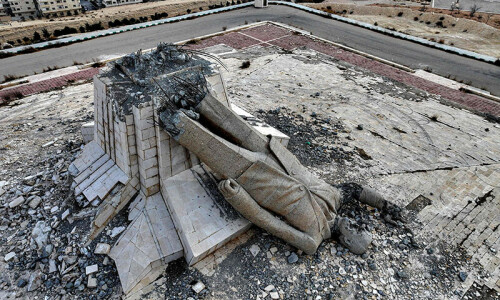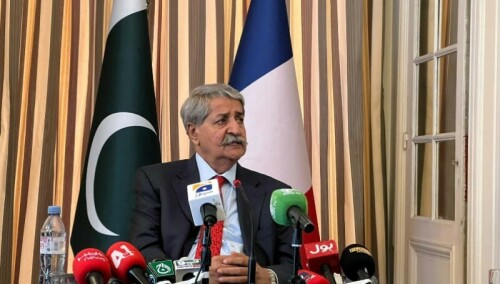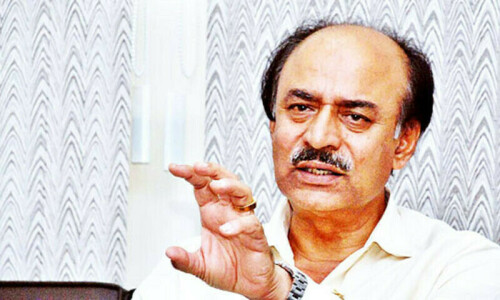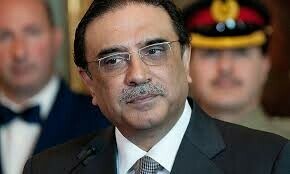SUCHITOTO (El Salvador): Belky Hernandez was three days old when US-backed government troops shot dead her mother, a Marxist guerrilla, in a forest in war-ravaged El Salvador. Her father, also a rebel, was already dead.
Seventeen years later, she runs a stall selling civil war memorabilia and mementos of Cold War revolutionaries Fidel Castro and Che Guevara. Alongside them, she now sells campaign T-shirts for Mauricio Funes, the man she hopes will heal old wounds by bringing a party of softened former rebels to power for the first time in presidential elections in March.
Funes, a bespectacled former TV journalist is the first presidential candidate fielded by the Farabundo Marti National Liberation Front who is not himself a former guerrilla. An eloquent centre-leftist, he reported on El Salvador’s 12-year civil war but never fought in it.
Leading in opinion polls, Funes promises to pursue market-friendly policies and get on well with Washington if he wins. He appeals to pro-US voters who never before supported the FMLN, while maintaining strong support from long-time loyalists like Hernandez.
“We remember what they fought for. Before, the war was in the streets and now it’s inside us,” Hernandez said in the former FMLN rebel stronghold town of Suchitoto, ringed by forest where her parents and hundreds of others died.
Since the war ended with 1992 peace accords, the FMLN has lost three presidential elections to the right-wing and pro-US Nationalist Republican Alliance, or ARENA.
Yet as it has moved closer to the political centre, the FMLN has become the largest party in the national assembly and some voters more concerned about poverty than ideology feel it is time to give it a chance in power.
“You feel you can trust Funes because he’s a civilian and he was never in politics until now,” said 83-year-old building site labourer Jose Amaya at a Funes rally in San Salvador.
Funes’ opponents fear El Salvador will join a hard left-wing bloc of Latin American countries led by Venezuela if he wins, but he dismisses the claims and the party faithful have dropped much of the anti-American rhetoric of the past.
“This is not Nicaragua or Venezuela. We have our own ideology. We don’t want to be enemies with America. We just want help for the poor and better security,” said Hernandez.
Polls show Funes up to 15 points ahead of ARENA rival and ex-police chief Rodrigo Avila ahead of the March 15 election.
His political TV show and hard-hitting reporting style have made him a well-known face here with a wide base. Backers say picking him to run has persuaded many middle-ground voters that the FMLN can now be trusted with power.
“The fact is that Funes has boosted a lot of hopes,” said Walter Navarete, 42, who joined the FMLN at the age of 14 in the city of Cojutepeque and fought into his mid-20s.
“This is the closest we’ve ever been.”
Wheelchair beggars
Peppered with US-style malls and fast-food joints, El Salvador has moved on from the war years when FMLN rebels, armed by Cuba and the Soviet Union, battled US-backed governments in a war that left 75,000 people dead.
Its official currency is now the US dollar and the cash wired home by migrant workers in the United States is equivalent to a fifth of the country’s economic output.
But scars of the war are everywhere, from the maimed ex-fighters begging from wheelchairs to families ruptured by the flight of more than a quarter of the population to the United States over the years, to escape war, poverty and violent crime.
As the global economic crisis starts to bite in poor countries, ARENA supporters ask how a party built by Marxists can steer El Salvador’s export-based economy, with its costly fuel imports and high unemployment, through the turmoil ahead.
“If the FMLN wins, the first thing that will happen is investors will leave,” said fisherman Santiago Mancia in La Libertad, a Pacific beach town striving to attract tourists.
“Their ideology hasn’t changed, they’re just the same as before,” said Mancia, 63, remembering when guerrillas hid in the hills and launched attacks against the army.
El Salvador’s fledgling economy is standing up better than much of Central America to the world economic battering.
Adopting the dollar in 2001 has held down inflation and a tireless array of factories has cranked up exports of everything from toilet paper to screws. A booming service sector now dwarfs volatile coffee export revenues.
“The dollar gives us a shield other countries don’t have. We don’t have to worry about the exchange rate,” Luis Aquino, head of economic statistics at the central bank, told Reuters.
Yet the more than $300 million wired home by migrants each month, and the boxes of toys, clothes and home appliances flown back, will be squeezed by the crisis in the United States.
Funes says he is intent on reducing the poverty, which is evident from the grimy shanty towns that pockmark the capital San Salvador to the coast where unemployed locals dig up endangered turtle eggs to sell as a delicacy.
Unlike Nicaragua’s President Daniel Ortega, the former anti-American guerrilla chief and Cold War leader who bounced back to power in 2006, Funes says a friendship with Washington could help El Salvador invest in infrastructure and crush the murderous street gangs that hold it in fear.
Economics, not ideology, is what Salvadorans overwhelmingly say they care about today.
“I can feel the war as fresh as if it was yesterday. It was so terrible,” said grandmother Alicia de Molina in Suchitoto.
“But there was a reason for it. They were fighting for something. Peace will come when the poor are looked after.”—Reuters















































Dear visitor, the comments section is undergoing an overhaul and will return soon.